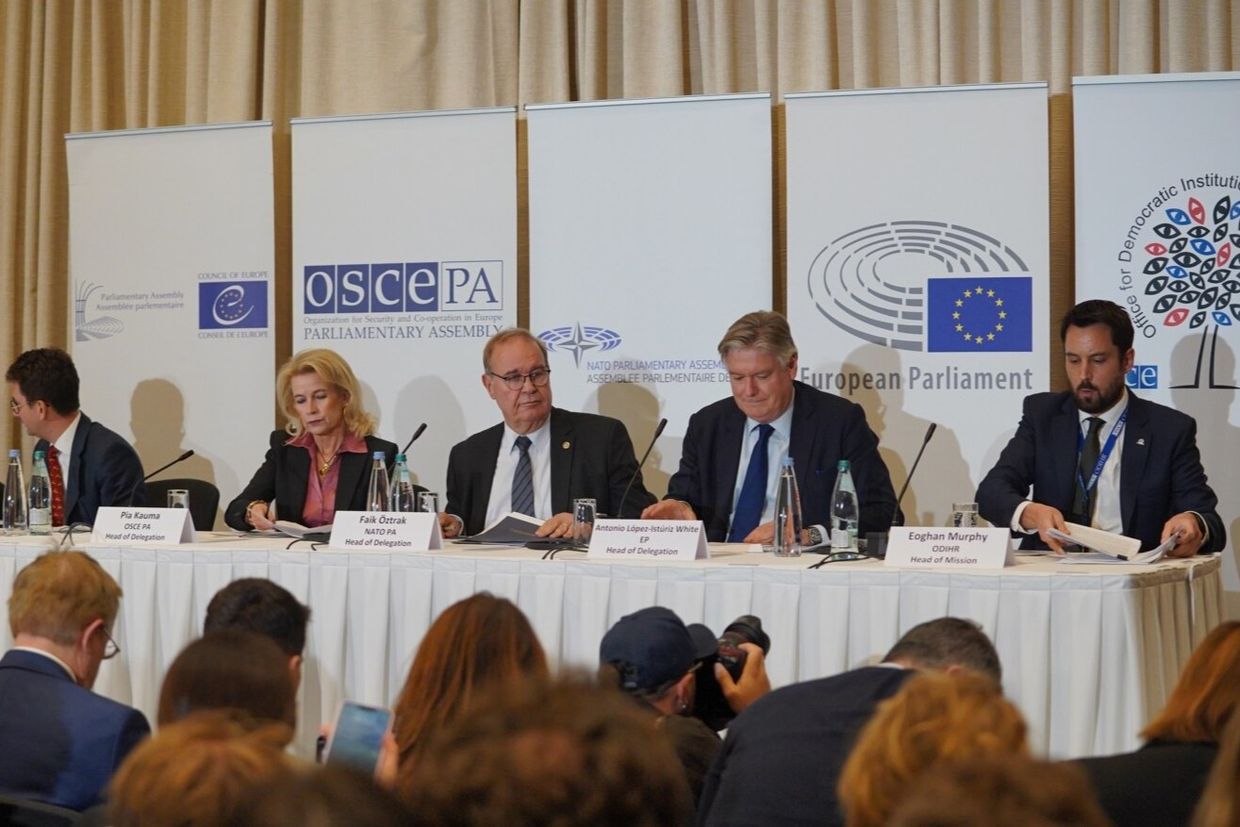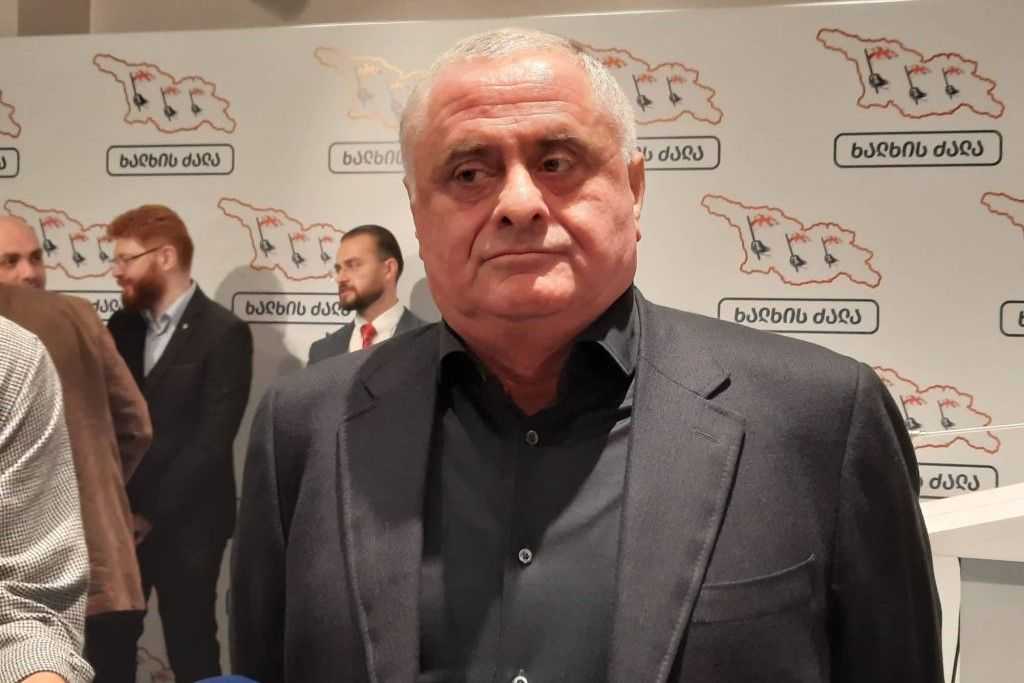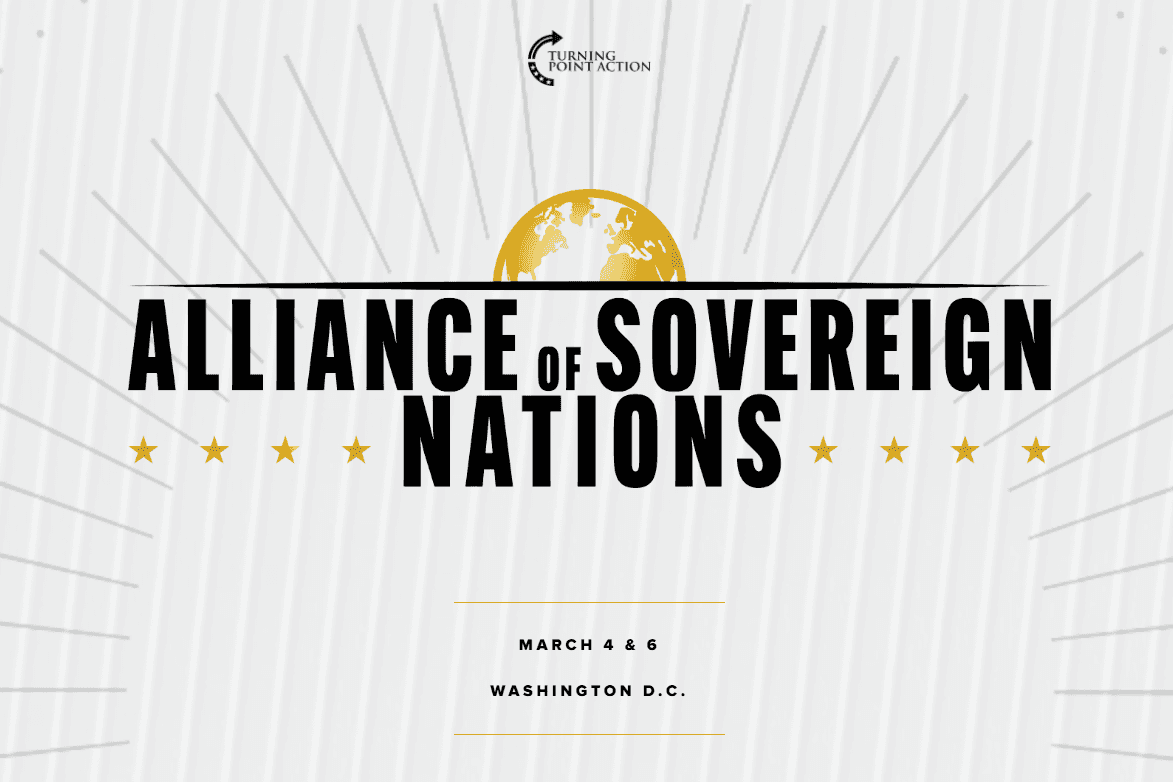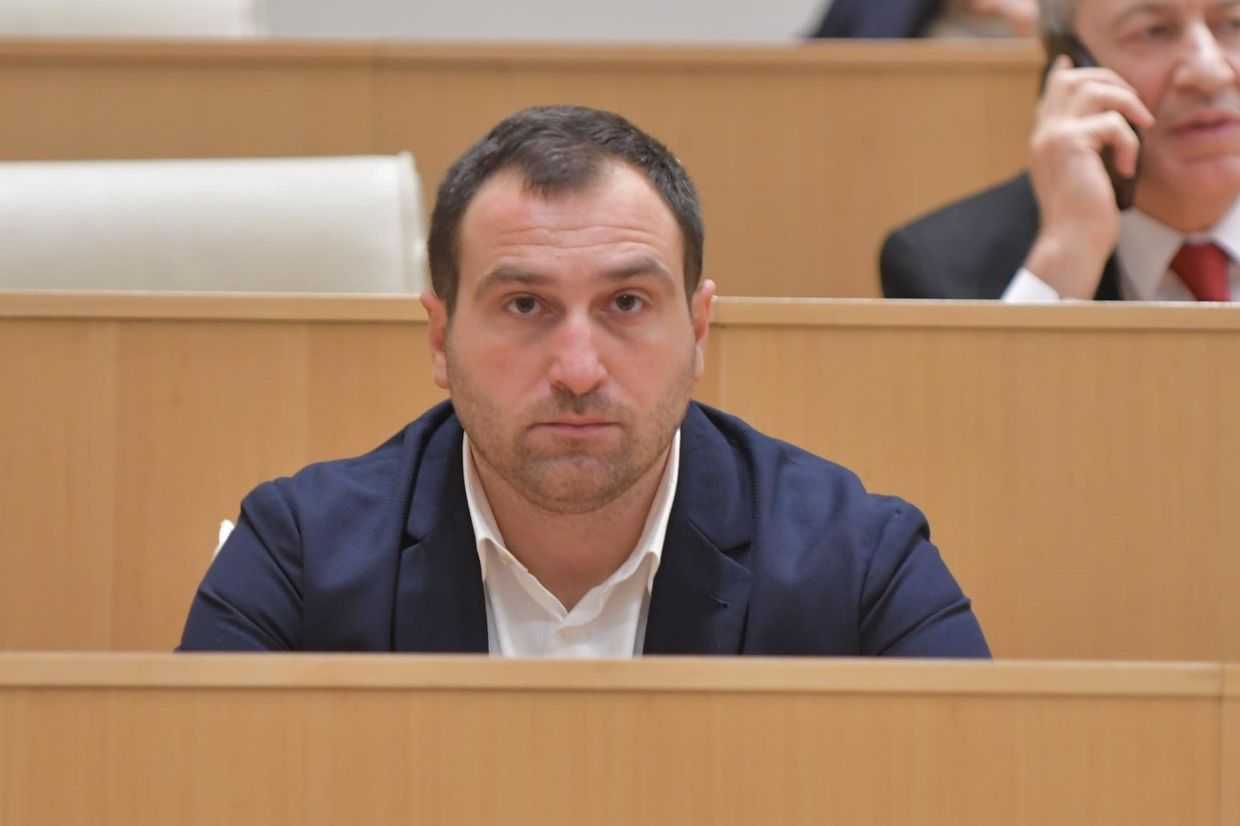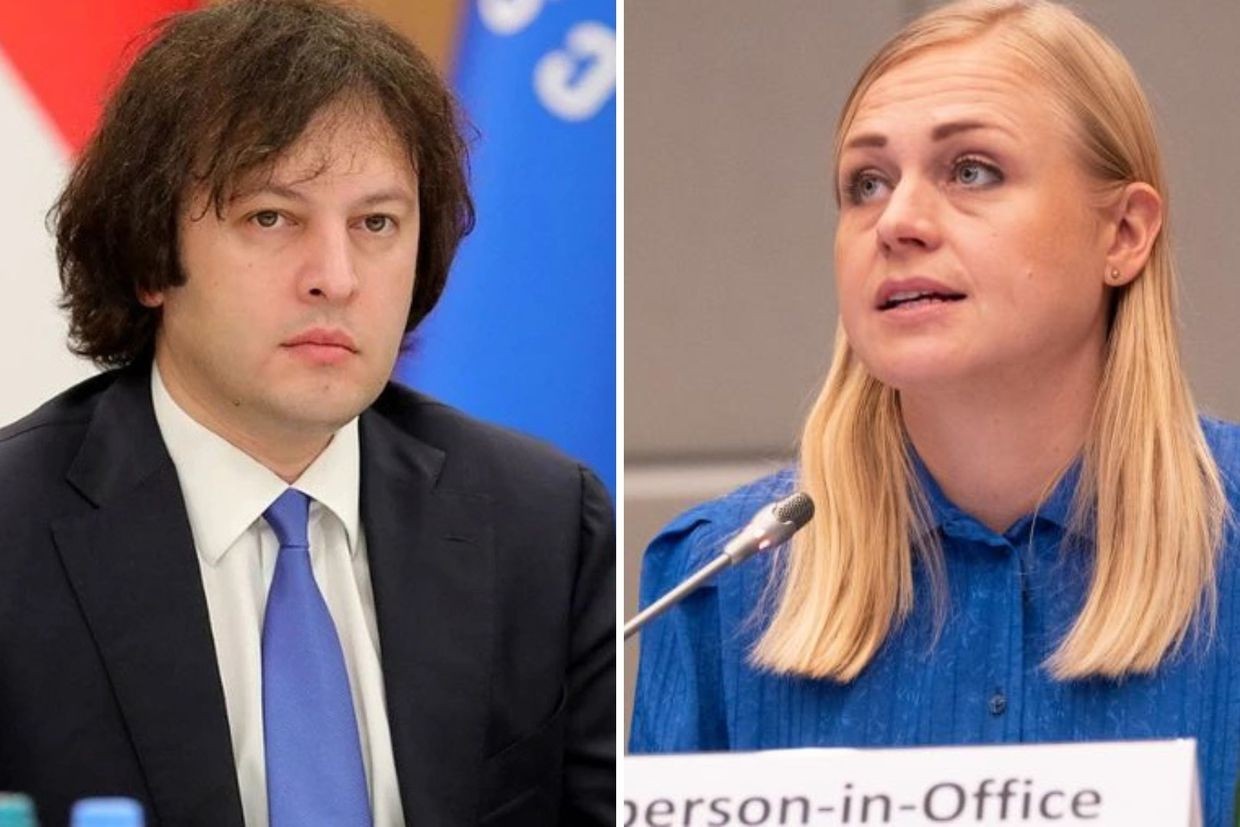
Editor’s note: This article has been updated to include comments from OSCE chair Elina Valtonen, who said that she had canceled the meeting, not Prime Minister Irakli Kobakhidze.
Georgian Prime Minister Irakli Kobakhidze canceled a meeting with the OSCE’s Chair, Finnish Foreign Minister Elina Valtonen, after she had appeared at an anti-government rally in central Tbilisi.
In a brief statement on Wednesday morning, the government said that Valtonen had participated in an ‘illegal rally’ and made ‘false statements’.
On Tuesday evening, Valtonen posted a video from Rustaveli Avenue in central Tbilisi, where anti-government protests have been ongoing for more than 300 days, ever since the ruling Georgian Dream party suspended the country’s EU membership bid.
‘There is a peaceful demonstration, gathering here […] the reason is that these people are concerned about the direction that this country has been taking; taking away the basic liberties of people, starting with the freedom of expression and the freedom of assembly’, Valtonen said in front of parliament, where the protest was taking place.
‘Needless to say these people deserve all of these rights and we are here to support them’, Valtonen added.
Peaceful protestors have gathered in front of the Parliament Building in Tbilisi, Georgia, to voice their concern over the repressive direction of their country. They have every right to democracy, to freedom of expression and basic human rights.
— Elina Valtonen (@elinavaltonen) October 14, 2025
We are here to support them. pic.twitter.com/6axn6usXay
Following the announcement of the meeting’s cancellation, the ruling party went on to accuse Valtonen of violating the country’s sovereignty.
‘[What] value does a statement of support for sovereignty in Odzisi have when you yourself are violating that sovereignty on Rustaveli Avenue’, said Parliamentary Speaker Shalva Papuashvili, commenting on Valtonen’s trip to the village of Odzisi, near the South Ossetian boundary line, a day after her appearance at the protest.
However, in an article published on Wednesday, the Finnish publication Helsingin Sanomat quoted Valtonen saying in a phone interview that ‘the meeting was not canceled at the initiative of Georgia, but rather at the initiative of Finland due to a schedule change, and the Georgians were informed about it last night’.
According to the publication, Valtonon denied her participation in the protest or making false statements.
‘I specifically went to watch the protests that were taking place in Georgia for weeks and months. I wanted to express my support for freedom of speech’, she said.
Commenting on the reaction of the Georgian government to the protest, Valtonen said, ‘It is up to the Georgian government how they react. Unfortunately, I myself had to react by canceling the meeting with the Prime Minister in order to get to Azerbaijan’.
According to the publication, Valtonen left Georgia early to meet Azerbaijani President Ilham Aliyev and Foreign Minister Jeyhun Bayramov, after their earlier meeting was postponed when the Azerbaijani leaders traveled to Egypt for a Gaza peace summit.
Valtonen had arrived in Tbilisi as part of her South Caucasus tour, which includes visits to Azerbaijan, Armenia, and Georgia scheduled for 13–15 October.
‘In Georgia, meetings will focus on Georgia’s internal and external challenges, with a focus on the continued support of the OSCE to the Geneva International Discussions to address the consequences of the 2008 war’, the OSCE said in a 10 October statement which is no longer available on its website.
The OSCE chair’s case is not the first time Georgian Dream has presented one version of events while the other side tells a different story. The instances have included the Georgian government downplaying or omitting critical parts of diplomatic communications, typically with Western governments, which were later reported by other parties.

During her visit, Valtonen met with Foreign Minister Maka Botchorishvili and representatives of Georgia’s civil society on Tuesday.
According to Valtonen, her discussion with Botchorishvili focused on the need for Russia to fulfill its obligations stemming from the August 2008 War, but she also ‘conveyed concerns about the current domestic situation in Georgia’.
‘Despite repeated calls from international bodies [...] repression against civil society actors, peaceful protesters, and independent journalists continues’, she said in a social media post after the meeting with Botchorishvili. She added that ‘the Georgian government must find a way out of the crisis and restore trust in democratic institutions’.
For her part, at a joint briefing, Botchorishvili thanked Valtonen for her visit and highlighted the consequences of Russian occupation, adding that ongoing developments in Georgia should be assessed ‘objectively’.
‘When we speak about the need to strengthen democratic institutions, we should not overlook the attacks being carried out against their functioning, such as the parliament and the institution of the president’, she added, alluding to critics of the ruling Georgian Dream party.
Georgia’s relations with its traditional international partners deteriorated after Georgian Dream halted the country’s EU membership bid on 28 November and responded with violence against demonstrators who subsequently took to the streets in protest.
The situation was further aggravated by the arrests of government opponents and the adoption of restrictive laws during the same period, targeting independent media, civil society, and the political opposition.
In July 2025, the OSCE Parliamentary Assembly adopted a resolution condemning both Russia’s occupation of Georgian territory and expressing concern over the country’s democratic backsliding.
The OSCE/ODIHR observation mission, which traditionally extensively monitored elections in Georgia, did not send observers to monitor the 4 October municipal elections. After initially declining to do so, the ruling party invited the mission only a month before the vote — a timeframe the OSCE/ODIHR deemed insufficient for proper preparation.
